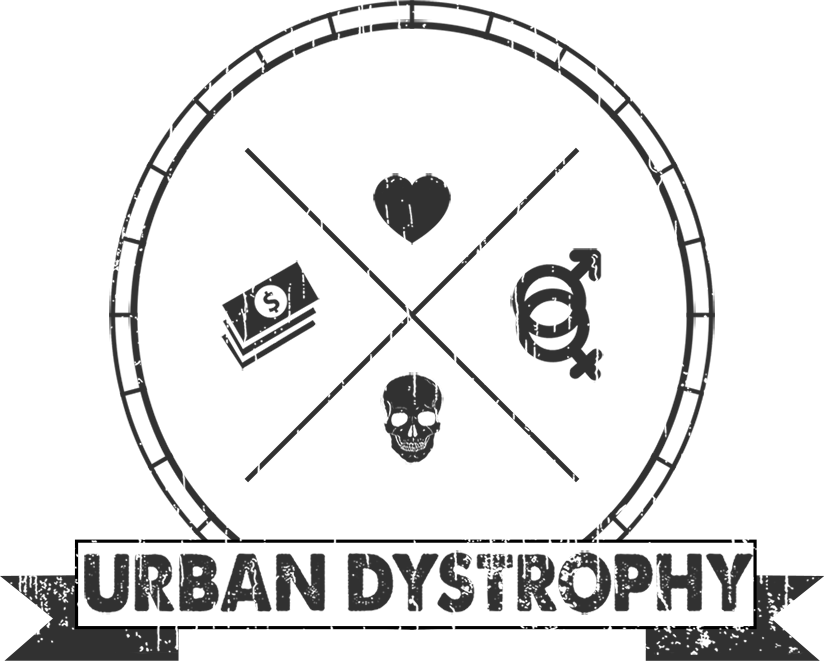Feelings are hurt.
People feel exposed, violated.
But memoirs are what they are…inherently hostile.
I’m referring to my latest book Urban Dystrophy [the book], now selling on Amazon.
In it I make the case that personal histories are all relative.
We live and love in our own shoes, including family members living under the same roof.
All of us are composite sketches, fragments of both nature and nurture, colliding in one gene pool.
Some family relationships are seamless, others a series of backfires over and over again.
How each of us turns out is always a crap shoot.
In Urban Dystrophy you’ll find a Preface that goes into some detail about my relationship with my late father.
Apparently, that one small section of the book is the very heart of bedlam, sacrosanct in the minds of some.
Once you read it you can’t help but notice that my father made a monumental impression on my life, both good and bad.
But in the minds of some, I should have stuck to the good and tossed the rest of it in the nearest trash bin where history is buried forever.
“Why air dirty laundry?”
“Why violate anyone else’s subjectivity?”
I certainly didn’t set out to hurt and/or exploit anyone involved for the sake of publicity, fame or money.
That’s not who I am.
Calling things as I see them, however, is.
I can’t please everyone, nor would I try.
But I do have to live with my decisions, which is not easy for anyone who scripts memoirs involving people other than themselves.
Here’s an interesting article on the subject:
http://www.writersdigest.com/online-editor/how-to-write-about-family-in-a-memoir
Sue William Silverman offers this advice: “I never allowed concerns to stand in the way of writing. I’ve always felt that as a writer of memoir, I own my truth and I am free to write about it.”
We can’t know how family members will react to the exposure of painful secrets or unspoken truths, but most memoirists would agree that you can’t predict what will happen, who will feel good or bad about the revelations in your work, and why. I thought one of my memoirs served as a sort of apology to someone, and that person is one of the people who couldn’t forgive me for writing it. I was terrified about how my mother would respond, and she’s been one of my greatest supporters. We can’t know, or control, what happens. The key, then, is to write. Just write, and prepare for potential responses, good or bad.
Well said.

